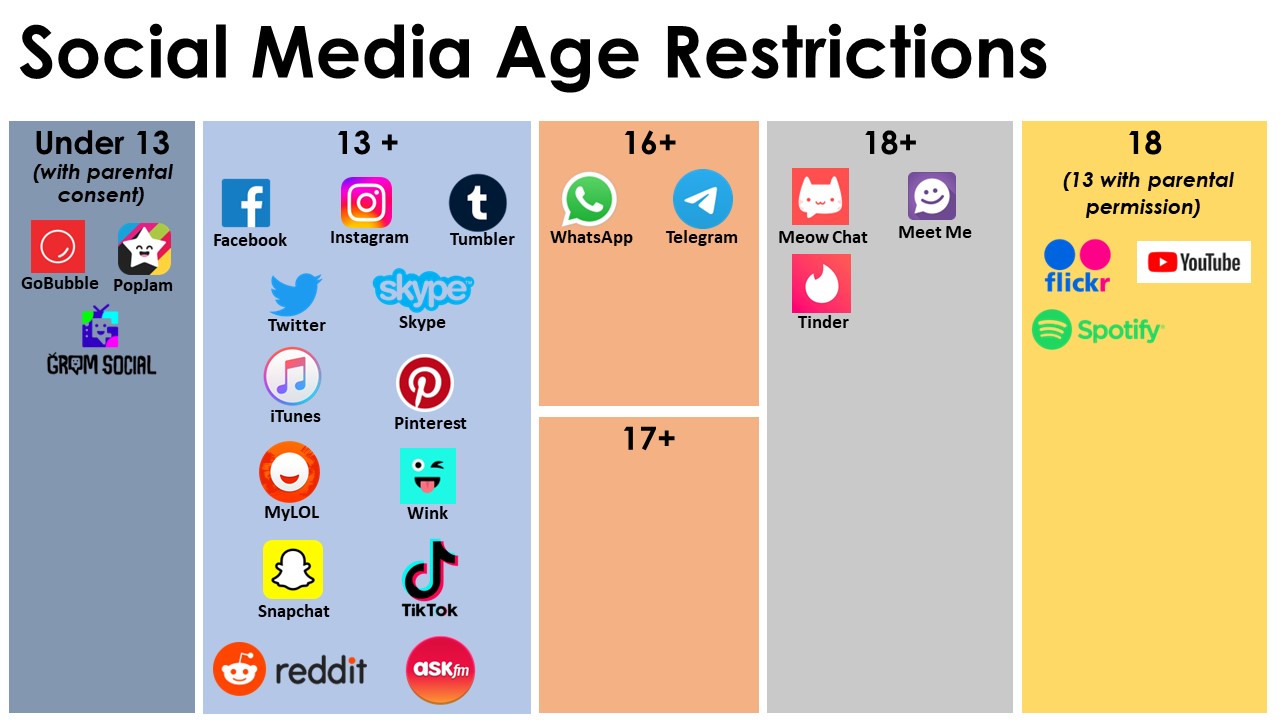


Australia's Prime Minister Anthony Albanese has announced the implementation of age restrictions on social media for those under 16 as part of a larger campaign to increase accountability among tech giants. The responsibility to block underage users now falls squarely on social media companies, with non-compliance resulting in fines for the platforms. This move aligns with a global trend of increasing online safety measures for young users, though enforcing age limits remains challenging due to varying regulations and technical barriers.
Australia Implements Age Restrictions on Social Media for Under-16s
In a significant move to enhance online safety for children, Australia has announced the implementation of age restrictions on social media for those under 16. Prime Minister Anthony Albanese made the announcement as part of a broader campaign to increase accountability among technology giants.
Background
Social media platforms have come under increasing scrutiny in recent years over concerns about their impact on young users. Studies have shown that children are particularly vulnerable to cyberbullying, online predators, and the spread of misinformation.
In Australia, the issue gained prominence after a Senate inquiry in 2019 found that social media companies had failed to adequately protect children from harmful content and behavior. The inquiry made a number of recommendations, including the implementation of age verification measures.
The New Regulations
Under the new regulations, social media companies are responsible for blocking underage users from accessing their platforms. This includes conducting age verification checks and using technical measures to prevent under-16s from creating accounts.
Non-compliance with the regulations can result in fines of up to AUD$10 million for the platforms. The responsibility for age verification now falls squarely on the companies, unlike in some other countries where users are required to self-declare their age.
Challenges in Enforcement
Enforcing age limits on social media remains a challenging task due to varying regulations and technical barriers. Children may use fake birth dates to create accounts, or they may access social media through school networks or public Wi-Fi, which may bypass age verification systems.
However, the Australian government has stated that it will work closely with social media companies to develop effective solutions. It is hoped that the new regulations will deter companies from lax enforcement of age limits and encourage them to invest in robust verification technologies.
Top 5 FAQs
1. Why is Australia implementing age restrictions on social media?
To protect children from the potential harms associated with social media use, such as cyberbullying, online predators, and misinformation.
2. What is the age limit for social media in Australia?
16 years old.
3. Who is responsible for enforcing age restrictions?
Social media companies are responsible for blocking underage users from accessing their platforms.
4. What are the penalties for non-compliance?
Fines of up to AUD$10 million.
5. How will age verification be implemented?
Social media companies will use age verification checks and technical measures to prevent under-16s from creating accounts.
Conclusion
Australia's decision to implement age restrictions on social media is a positive step towards protecting children in the digital age. While challenges remain in enforcing such measures, the new regulations send a strong message to technology giants that they must prioritize the safety of young users. It is hoped that the move will encourage other countries to follow suit and take similar measures to safeguard children from the potential risks of social media.

In a strongly worded statement, politician Shashi Tharoor expressed his opposition to the VB-G RAM G Bill that aims to replace MNREGA. Tharoor argued that the removal of Mahatma Gandhi's name from the scheme goes against its core values and also criticized other proposed changes such as financial alterations and a shift of responsibility to states. The politician believes that the Bill poses a threat to the principles of federalism and that the scheme should not be made subject to executive notification.

Union Minister Shivraj Singh Chouhan introduced the Viksit Bharat - Guarantee for Rozgar and Ajeevika Mission (Gramin): VB-G RAM G Bill, 2025 in the Lok Sabha. The bill aims to establish a new rural development framework aligned with the national vision of Viksit Bharat @2047 and seeks to provide a statutory guarantee of 125 days of wage employment to each rural household. The government is determined to pass the bill in this parliamentary session and failure to do so could complicate budgetary provisions.

In a significant move to improve academic standards, India's new Viksit Bharat Adhishthan Bill, 2025, places student feedback at the heart of higher education accreditation. Union Education Minister Dharmendra Pradhan, citing the National Education Policy 2020, announced that for the first time, students will have a direct impact on accreditation outcomes. The new framework will also increase institutional autonomy and encourage innovation, but with a strong emphasis on accountability through transparent student-led evaluations. The consolidation of regulators and accreditation bodies aims to streamline and strengthen the quality of higher education in India.

On the occasion of Vijay Diwas, a day commemorating India's 1971 victory over Pakistan, Rahul Gandhi, Leader of Opposition in Lok Sabha, paid his respects to the brave soldiers who showed indomitable courage, leading to the liberation of East Pakistan and the formation of Bangladesh. The date also marks the surrender of 93,000 Pakistani soldiers to the Indian Armed Forces and is a tribute to the bravery and sacrifice of Indian soldiers. Congress National President Mallikarjun Kharge also highlighted the 1971 victory as a great example of humanity and justice under the leadership of then Prime Minister Indira Gandhi.

Senior Congress leaders respond to Delhi court's refusal to take ED's chargesheet in the National Herald-Young Indian case, emphasizing the lack of evidence and foundation of the case. They accuse the BJP of exaggeration and targeting the opposition, claiming that the ruling has validated their long-held belief that the case is politically motivated. Congress leader Abhishek Manu Singhvi highlights the legality and commonality of corporate restructuring, while Congress general secretary K.C. Venugopal condemns the Modi government's targeting of Sonia Gandhi and Rahul Gandhi without any legal basis.

The Congress party declared a moral and legal triumph after the Delhi court dismissed the Enforcement Directorate's chargesheet in the National Herald-Young Indian case. The judge noted that the chargesheet was based on a private complaint rather than an FIR, making it legally inadmissible. The Congress accused the Modi government of maliciously targeting its leaders and misusing central agencies for political gain. They vowed to continue fighting for truth and democratic rights, asserting that nothing could deter them from their mission.

India commemorates Vijay Diwas every year on December 16 to honour the soldiers who sacrificed their lives during the 1971 war with Pakistan, which resulted in the creation of Bangladesh. As part of this year's celebrations, the Indian Army displayed a reconstructed Turkish armed drone, Yiiha, which was shot down by India during Operation Sindoor on May 10. The Kamikaze class of drones, also known as "suicide drones," were used by Pakistan to target Indian military and civilian installations, but were almost all destroyed by the Indian military.

India celebrates the 54th Vijay Diwas, honoring the bravery and sacrifice of its soldiers in the 1971 war that led to the liberation of Bangladesh. Political leaders, including Prime Minister Narendra Modi and President Droupadi Murmu, pay glowing tributes to the armed forces and their unmatched courage. The Army marks the occasion by recalling the historic triumph and the flawless coordination between different branches of the military, with an impressive Military Tattoo in Kolkata.

Renowned spiritual leader and former BJP MP, Ram Vilas Vedanti, passed away at the age of 67 due to a heart attack. Known for his significant role in the Ram Janmabhoomi movement, Vedanti had been admitted to a hospital in Rewa for a blood infection and low blood pressure. Attempts to transport him to a better medical facility were unsuccessful due to bad weather. Political leaders, including Uttar Pradesh Chief Minister Yogi Adityanath, expressed their condolences and praised Vedanti's contributions to society.

Indian Ambassador to the United Nations, Harish P, slammed Pakistan for misusing international platforms for its hostile agenda against India at the UNSC Open Debate on “Leadership for Peace”. He objected to Pakistan’s reference to Jammu and Kashmir and questioned its democratic credentials while reaffirming India’s stance on cross-border terrorism. This reflects the ongoing strain in India-Pakistan relations and New Delhi’s determination to counter any attempt by Islamabad to internationalise bilateral disputes.